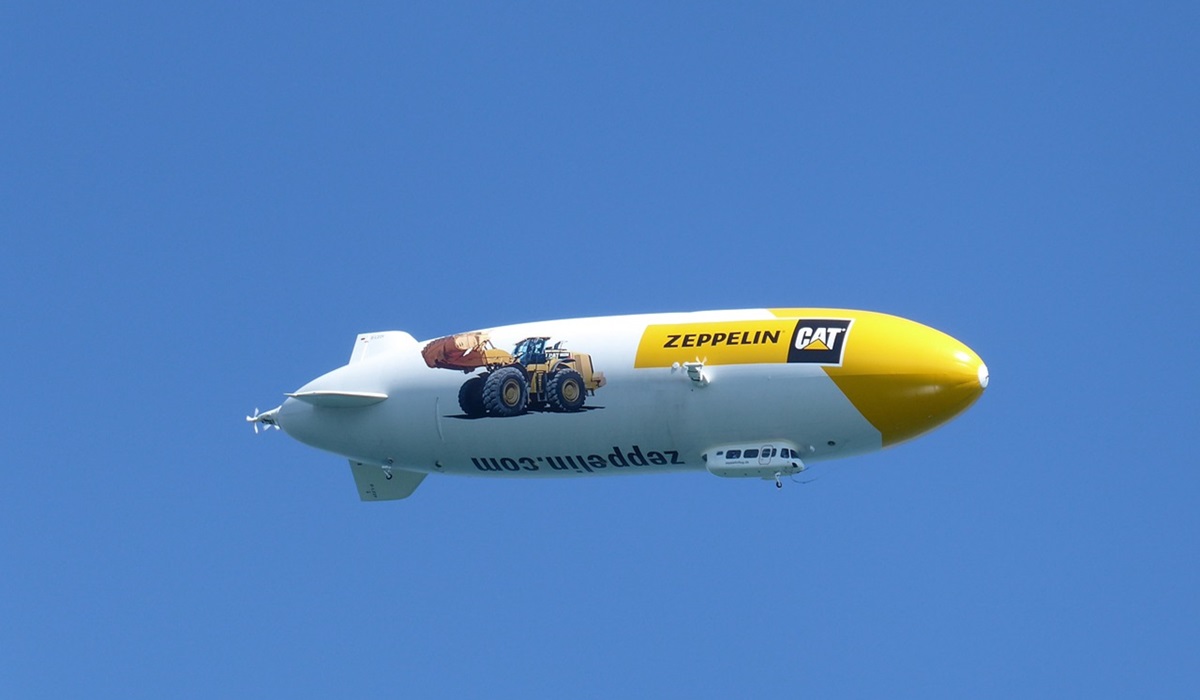Hydrogen Aircraft Market Is Estimated To Soar at 22.4% CAGR Projected- Coherent Market Insights
- Ronak Shah
- World News
- January 16, 2025

Image Credit, Garten-gg
A newly published report by Coherent Market Insights reveals a sustainable growth in opportunities in the Hydrogen Aircraft Market. Coherent Market Insights analyst projected the Hydrogen Aircraft Market is estimated to be valued at US$ 6.7 Bn in 2023. It is expected to exhibit a CAGR of 22.4% over the forecast period 2023-2030.
Market Dynamics: The hydrogen aircraft market is expected to witness significant growth owing to growing adoption of sustainable aviation fuel and stringent emission norms by regulatory bodies. Hydrogen fuel offers zero carbon emission and can help aircraft industry meet sustainability goals.
Also, expansion of hydrogen infrastructure globally and reduction in fuel cell costs is supporting the development of hydrogen-powered aircraft concept. Various aircraft manufacturers such as Airbus, Boeing are investing heavily in R&D to develop hydrogen fueled passenger aircraft.
Market Trends: Commercial feasibility of smaller hydrogen aircraft: Several companies are working on prototype of smaller commercial hydrogen aircraft with passenger capacity of up to 100 seats and flight range of up to 1,000 Km. This could help airlines deploy hydrogen aircraft on short haul routes initially to evaluate their performance. Successful operation of these aircraft would increase confidence in hydrogen technology and boost its larger scale adoption.
Partnerships between energy and aviation companies: Leading energy providers have also started partnering with aircraft manufacturers to develop sustainable hydrogen supply chain for aviation industry. For instance, Airbus partnered with Shell to develop pathways for scaling up production and supply of liquid hydrogen for aviation. Such partnerships are crucial for commercialization challenges around hydrogen infrastructure and supply.
Market Opportunities: The commercial aviation segment is one of the major opportunities in the hydrogen aircraft market. Several aircraft manufacturers are working on developing hydrogen-powered commercial aircraft to reduce carbon emissions from this high pollution industry. Airbus is developing zero-emission concept aircraft called ZEROe that will enter service by 2035. The company is exploring various hydrogen plane designs including turbofan, turboprop and blended wing body aircraft. Boeing is also studying hydrogen fuel cell and liquid hydrogen options to power future commercial planes. Startups like Zeroavia are testing six-seat and 19-seat hydrogen-electric passenger planes aimed at the short-haul segment. Hydrogen is seen as one of the most viable clean fuel alternatives for powering larger commercial aircraft in the future. The adoption of hydrogen aviation will help decarbonize long-distance air travel and promote sustainable air transportation.
Military aviation is another key opportunity segment for hydrogen planes. Armed forces across countries are interested in hydrogen powered military aircraft due to benefits like longer endurance and zero operational emissions. American company Aerovironment has developed a small hydrogen fueled H2OP Air drone to demonstrate hydrogen electric propulsion for defense applications. European makers like Pipistrel and Energy Systems are collaborating with militaries on developing hydrogen vertical take-off planes. Rolls Royce is working with UK Ministry of Defense to explore how hydrogen can replace conventional fuels in fighter jets and other military planes. Adoption of hydrogen by armed forces will help reduce their carbon footprint from aviation and demonstrate next-gen clean aircraft technologies.
Key Market Takeaways: The global hydrogen aircraft market is anticipated to witness a CAGR of 22.4% during the forecast period 2023-2030. This is owing to increasing focus on decarbonizing aviation industry.
On the basis of passenger capacity, less than 100 passenger segment is expected to hold a dominant position, owing to increasing demand for hydrogen fuel cell powered small commuter planes. By range, the short haul segment (<1000 km) is expected to dominate the market, due to growing fleet of hydrogen planes for short distance regional routes.
On the basis of application, the passenger aircraft segment will dominate over the forecast period as majority of ongoing hydrogen aviation projects focus on developing zero-emission airliners. Regionally, North America is expected to hold a dominant position over the forecast period, due to active government support and presence of prominent hydrogen aircraft manufacturers like Boeing, Zeroavia and Universal Hydrogen in the region.
Competitors Insights
Some of the leading players operating in the global hydrogen aircraft market include
- Aerodelft, Aerovironment Inc.
- Airbus S.A.S.
- Pipistrel D.O.O.
- PJSC Tupolev
- The Boeing Company
Recent developments:
In March 2022, Gloyer-Taylor Laboratories announced a joint venture with Hypoint to provide carbon composite liquid hydrogen fuel tanks to hypoint to integrate it with hydrogen fuel cell technology. In May 2022, Airbus announced its plans to establish a facility in Filton, U.K. for creating hydrogen fuel system to use in aircarfts.








